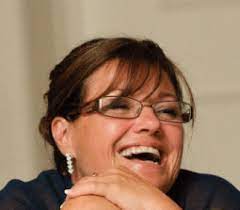TikTok lawsuit includes mysterious link to Yonkers Mexican bakery
An actor says TikTok stole her voice.
But why is she suing TikTok in Westchester County?

Bev Standing, a voiceover actor, lives in Canada. TikTok and its parent company, ByteDance, are based in China.
The answer, said Standing”™s attorney, Robert J. Sciglimpaglia Jr. of Norwalk, can be found at 118 New Main St., Yonkers.
That”™s a storefront in a parking garage adjacent to Yonkers City Hall. And it is the address for Xianxi Liu, the registered agent for Bytedance E-Commerce Inc., doing business as TikTok in New York state.
Here the mystery deepens. The address is also the home of La Piñata Bakery, better known for sensational Mexican sweets ”“ photos of adult-themed cakes available on request ”“ than for short-form videos of dancing fools.
Is La Pi̱ataӪs aware of its connection to TikTok or Xianxi Liu?
“Not at all,” said the owner, who declined to give his name, in a brief telephone call.
Is this still your address?
“Yeh, that’s my address here, but I”™m not aware of anything.”
Is he familiar with TikTok?
He responded in a perplexed, drawn out questioning “No???”
Standing, of Welland, Ontario, describes herself as an internationally known voiceover actor, in a complaint filed May 6 in U.S. District Court, White Plains.
She has trained and practiced for years to hone a dynamic delivery of words, according to her website, on behalf of clients such as Kraft and Revlon. She bends her voice for automotive and medical pitches, and she can do “commercial British.”
You may have heard her on TV or radio, iPad apps, YouTube videos and even on-hold messaging.
But she has never authorized TikTok, the social media platform that features videos of one minute or less, to use her voice. Yet according to her complaint, TikTok users can add her computer-generated voice to their videos.
Standing explained that years ago the Institute of Acoustics in Scotland hired her, purportedly, to do voice work on Chinese translations. The institute received electronic data files of her voice.
Last November she discovered that TikTok was using the voice files for its computer-generated female voice, according to the complaint, including “foul and offensive language.”
She never gave TikTok permission, she says, and was never compensated for the use of her voice.
She charges TikTok with copyright infringement, unfair competition, false endorsement, and deceptive business practices.
TikTok has traded on the goodwill she has amassed in her career, the complaint states, and has deprived her of the ability to control her reputation.
She is asking the court to order TikTok to stop using her voice and to dispose of the electronic voice files. She is demanding up to $150,000 in damages for every copyright infringement.
TikTok did not respond to an email asking for its side of the story.